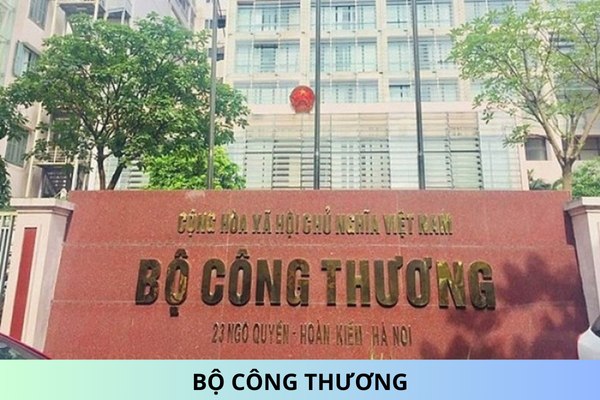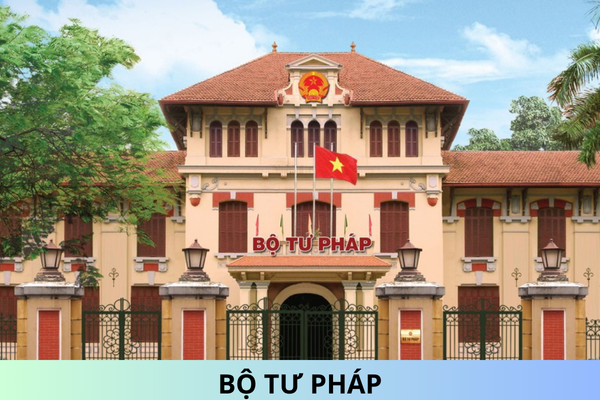In which cases will civil servants in Vietnam who give birth to a third child be disciplined?
In which cases will civil servants in Vietnam who give birth to a third child be disciplined? - Mr. Hai (Ben Tre)
According to the law in Vietnam, who are civil servants?
Pursuant to Clause 1 Article 4 of the Law on Cadres and Civil Servants in 2008 (amended by Clause 1 Article 1 of the Law on amendments to the Law on Cadres and Civil Servants and the Law on Public Employees in 2019) stipulating cadres and civil servants as follows:
Cadres and civil servants
...
2. Civil servants are Vietnamese citizens, recruited and appointed to ranks, positions and titles corresponding to job positions in agencies of the Communist Party of Vietnam, the State, socio-political organizations at the central, provincial and district levels; in agencies and units of the People's Army but are not officers, professional soldiers, or defense workers; in agencies and units of the People's Public Security but are not officers or non-commissioned officers serving under the professional regime, police workers, on the payroll and receiving salaries from the state budget.
Therefore, a civil servant is a Vietnamese citizen who is recruited and appointed to a rank, position, or title corresponding to the position in:
- Agencies of the Communist Party of Vietnam, the State, political-social organizations at the central, provincial, and district levels;
- Agencies and units of the Vietnam People's Army that are not officers, professional soldiers, or military workers;
- Agencies and units of the Vietnam People's Public Security that are not officers, non-commissioned officers serving under a professional regime, or police workers, on the payroll and paid from the state budget.
What are cases in which civil servants in Vietnam do not violate the limit of having one child or two children?
Pursuant to Article 2 of the Decree 20/2010/NĐ-CP (amended by Article 1 of the Decree 18/2011/NĐ-CP) stipulating cases in which the limit of having one child or two children is not violated:
- A couple, one or both of whom belongs/ belong to an ethnic minority group with a population of under 10,000 or in danger of population decline (the birthrate is lower than or equal to the mortality rate) as officially announced by the Ministry of Planning and Investment, give birth to their third child.
- A couple who have three or more children at their first birth.
- A couple who already have one natural child and then have two or more children at their second birth.
- A couple who have only one alive natural child, including a child already adopted by others, at the time of giving birth to their third or subsequent child.
- A couple with two children one or both of whom suffers/suffer a non-hereditary malformation or fatal disease certified by a provincial- or central-level medical assessment council, give birth to their third child.
- For a couple who already have their own children:
+ They may have between them one child or two children, if either of them already has his/her own child (children);
+ They may have between them one child or two children or more in the same birth, if both of them already have their own children. This provision is not applicable to a couple having two or more common children who are currently alive.
- An unmarried woman who gives birth to one child or two or more children at the same birth.
In which cases will civil servants in Vietnam who give birth to a third child be disciplined? - Source: Internet
In which cases will civil servants in Vietnam who give birth to a third child be disciplined?
Based on Official Dispatch 6616/BNV-CCVC in 2021 guiding the handling of disciplinary action and quality classification for cadres, public servants, and public employees who are disciplined for violating the population policy and family planning:
In response to Official Dispatch 2506/SNV-CCVC dated December 15, 2021 of the Department of Internal Affairs of Ha Tinh Province requesting guidance on the handling of disciplinary action and quality classification for cadres, public servants, and public employees who are disciplined for violating the population policy and family planning, the Ministry of Internal Affairs has the following opinions:
1. In cases where cadres, public servants, and public employees give birth to a third or more children, if they belong to one of the cases that do not violate the population policy and family planning regulations under the provisions of Decree 20/2010/ND-CP, Decree 18/2011/ND-CP, and Guidance 04-HD/UBKTTW dated March 22, 2018 of the Central Commission for Inspection of the Communist Party of Vietnam, they will not be considered for disciplinary action under the provisions of Decree 112/2020/ND-CP.
In cases where cadres, public servants, and public employees violate the population policy and family planning regulations, the disciplinary action will be considered after the birth of the third child. When considering disciplinary action, it is recommended to base on the severity of the violation as stipulated in Clause 2, Article 6 of Decree 112/2020/ND-CP to apply the appropriate disciplinary measure, ensuring the correspondence between disciplinary action in terms of the Party and administrative discipline.
2. According to the provisions of Decree 90/2020/ND-CP, in cases where cadres, public servants, and public employees who give birth to a third child are disciplined by the Party or administratively, they will be classified as "Did not complete the task" of that year.
Above is the opinion of the Ministry of Internal Affairs on the request of the Department of Internal Affairs of Ha Tinh Province.
Therefore, civil servants who give birth to a third child will be disciplined if the case of giving birth to a third child does not belong to one of the cases that do not violate the population policy and family planning regulations as in section 1 above.
The disciplinary action will be considered after the birth of the third child.
How to determine the severity of disciplinary offenses of cadres, public servants, and public employees in Vietnam?
Pursuant to Clause 2, Article 6 of Decree 112/2020/NĐ-CP stipulating determination of the severity of the disciplinary offenses of the disciplinary offenses of cadres, public servants, and public employees as follows:
- An offense that causes minor consequences is an offense that has a minor nature and impact, and affects the reputation of the agency, organization, or work unit within the internal scope.
- An offense that causes serious consequences is an offense that has a serious nature, impact, and is outside the internal scope, causing negative public opinion among cadres, public servants, and citizens, and reducing the reputation of the agency, organization, or work unit.
- An offense that causes very serious consequences is an offense that has a very serious nature, impact, and a scope of impact on the entire society, causing great public outrage among cadres, public servants, and citizens, and damaging the reputation of the agency, organization, or work unit.
- An offense that causes particularly serious consequences is an offense that has a particularly serious nature, impact, and a scope of impact that is far-reaching to the entire society, causing special public outrage among cadres, public servants, and citizens, and damaging the reputation of the agency, organization, or work unit.
Best regards!











